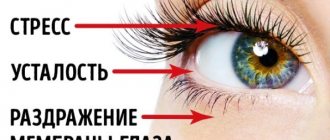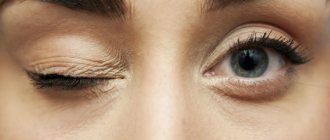They say that all the most beautiful and sad works of art were created in the fall and it’s all to blame for depression, which at this time covers quite a large part of the world’s population. What is autumn depression? Does such a diagnosis exist in medicine, or did people who like to mope come up with it themselves in order to somehow justify their tendency to pessimism?
What is autumn depression
A beautiful autumn day, amazing weather, sunny and still warm. People are taking advantage of the last warm days to enjoy the sun before the long winter. It would seem that everything is great, but nevertheless, something is wrong - your good mood has disappeared somewhere, and unreasonable irritability has appeared in its place. If such feelings are familiar to you, then it is likely that you have autumn depression.
Content:
- What is autumn depression
- What Causes Autumn Depression
- How to recognize seasonal blues
- Should autumn depression be treated?
- Diet against autumn sadness
- Foods that increase autumn depression
- How to prevent blues
People say different things about autumn depression. You can often hear that such a disorder does not exist and all mood swings have nothing to do with the change of seasons. Others mistakenly believe that depression is simply sadness or a personality trait. Meanwhile, experts have a slightly different opinion on this matter.
The term “autumn depression” is relatively new. It was invented in 2005 by therapist Gene Scully. In the literature you can find other names for this condition - seasonal affective disorder or seasonal affective syndrome. This condition is characterized by a number of psychosomatic disorders that occur in people as autumn approaches and usually persist until the first months of winter. Depression may have a social, psychological or biological origin. In addition, there is a so-called summer type of seasonal depression. It is not as common as autumn. This disorder begins in late spring and early summer and ends in the fall.
It is estimated that approximately 4-5% of the total population of the planet suffers from autumn depression, and in 10-20% of them the disorder is not accompanied by pronounced symptoms. Autumn depression is more common in women than in men. The peak manifestation of the disorder is at the age of 40-55 years. Autumn blues also happen in children. There is evidence that approximately 1.7% of children over 9 years of age also suffer from seasonal affective disorder.
Autumn depression cannot be underestimated. This is one of the most common causes of alcoholism and suicide. Statistics indicate that every two out of three suicides suffered from depression. It is also interesting that the autumn blues last longer and are more severe among residents of northern countries, that is, regions with less sunlight. And it extremely rarely affects residents of countries where the weather remains sunny all year round.
Some believe that autumn depression is the result of a lack of willpower. However, in 2007, American experts conducted an experiment with the participation of people suffering from depression. It turned out that the more the subjects tried to suppress their blues and anxiety, the more the so-called “fear center” was activated in their brains. This allowed experts to conclude that willpower has nothing to do with depression. And it’s hard to blame Abraham Lincoln or Winston Churchill for lack of willpower, but they, nevertheless, constantly suffered from the seasonal blues.
Another common misconception about depression is that it is not a real illness. Yes, blues cannot be diagnosed by a blood test, like diabetes, for example. However, this is a real disease that requires professional treatment. Therefore, depression and sad mood should not be confused. Sadness is fleeting and temporary, it appears regardless of the time of year and always has a specific reason. Seasonal depression appears regularly at the same time (in the fall) and for seemingly no apparent reason.
How do I know when to see a doctor?
Of course, everyone has days during the winter when they feel sluggish or unmotivated. But if your symptoms are causing disruption in your life, then don't hesitate to contact a professional.
Photo by Kristina Tripkovic on Unsplash
If symptoms persist for a few days, you notice major changes in your sleep or eating habits, you lose your temper socially, or activities that usually boost your mood don't work, then it's time to pick up the phone. Get help right away if you use alcohol to treat symptoms or have suicidal thoughts.
What Causes Autumn Depression
It is difficult to answer with certainty what causes autumn depression. Different researchers put forward different theories, many of which have a rational grain. One of the most common theories explains the seasonal blues due to hormonal changes. But there are other assumptions.
Increase melatonin
As daylight hours shorten, the concentration of the hormone melatonin increases in the human body. The more of this substance in our bodies, the stronger and more often we want to sleep and the less interest our usual life causes.
In addition, excess melatonin leads to a decrease in body temperature, which activates another response - consuming more high-calorie foods, which serve as a source of energy.
These seasonal changes in the body explain why, for some people, fall and winter are all about sleeping and eating. The result of this lifestyle is rapid weight gain, which makes depression even worse.
Decreased serotonin levels
As for hormonal levels, in this regard, everything in the human body is interconnected. As a rule, an increase in the concentration of one hormone causes a decrease in another. This happens with the “duet” melatonin-serotonin. The higher the melatonin content, the less serotonin in our blood. The latter is also known as the hormone of good mood or happiness. A lack of this hormone is a direct path to deep depression.
Decreased dopamine
Dopamine is another hormone whose amount in our bodies directly depends on the intensity of sunlight. The shorter the day, the less dopamine we have and the more prone we are to blues. Dopamine is responsible for concentration and attention. When the body lacks a hormone, a person loses interest in many previously loved things, including life in general.
Vitamin D deficiency
Decreasing sunshine is one of the biggest reasons why people suffer from anxiety and depression in the fall or winter. At this time, the days become shorter, most of us spend less time outside, our skin is less exposed to the sun, which causes a deficiency of vitamin D. And according to the results of many studies, a lack of this vitamin leads to depression and irritability. Fortunately, during the fall and winter, vitamin D can be taken with food or in the form of pharmacy vitamins. So everyone can cope with this cause of autumn depression.
Seasonal allergies
A 2009 study showed that when a person is sick, their mental state also changes: they feel depressed and become prone to blues. In another experiment, experts found confirmation of the existence of a relationship between allergies and depressive mood. Scientists suggest that the culprits are substances that are produced in the body during allergies and affect the immune system. As a result, against the background of seasonal allergies, immunity deteriorates, and with it, mood.
Scientists say that timely treatment of allergies can help get rid of depression.
Low physical activity
This factor, according to scientists, also contributes to the development of autumn depression. According to American experts studying the nature of the blues, daily 10-minute walks are enough to improve your emotional state and prevent the development of seasonal sadness.
Genetics
Experts are confident that a person’s tendency to fall into depression can also be determined by genetics. If parents or other relatives suffer from prolonged depression, this does not mean that the descendant will necessarily have this disorder. But the family factor still increases the risk of seasonal blues. Therefore, it is very important for people with a family history of depression to avoid drugs and alcohol, which can serve as triggers for the disorder.
Return to school/work
Do you think schoolchildren and students don’t experience autumn depression? It happens, and what! Even if a child enjoys studying, returning to school after the summer holidays is always stressful (for some it’s mild, for others it’s more intense). It is not easy for everyone to switch to a new mode of life, and if this time happened during a period of cold weather and rains, then it is often not easy for children to survive the “perestroika” “painlessly”. Hence the blues. Something similar happens to adults whose vacation (especially if it was long) occurred in the summer, and in September it is time to return to work.
How to cope with depression
- Find something positive about the fall season. Think about what made you happy, try taking up a hobby.
- Exercise regularly (at least three times a week for 30 minutes). Physical exercise provides an outlet for negative energy that accumulates as a result of stress.
- Change the environment around you. For example, rearrange your apartment or plan a global renovation. The main thing is to include maximum imagination and create without thinking. Add bright colors to your interiors and wardrobe.
- Follow a daily routine. This will help you balance your biological clock. It is especially important to go to bed and get up in the morning at the same time. It is recommended to start your day early - this will increase the feeling of its duration.
- Use bright light bulbs for lighting; they should have a power of about 300 W. This allows us to stimulate the production of serotonin and saturates our body with the hormones necessary for an adequate perception of reality and the return of positive thinking.
- Remember to eat right. Eat foods that contain the amino acid tryptophan, such as Dutch cheese, nuts (peanuts, almonds, cashews, pine nuts), meat (rabbit, turkey, poultry), milk, chicken eggs, red and black caviar, dates, dark chocolate and bananas. Add foods containing vitamin D. Limit the consumption of strong coffee and replace it with herbal tea. It is also recommended to abandon strict diets in the autumn-winter period.
- Avoid bad habits! Drinking alcohol is a common way for people to cope with seasonal depression. Alcohol is a depressant that further worsens symptoms of depression.
- Do not forget that stress is a part of life and it is almost impossible for a living person not to get into stressful situations.
How to recognize seasonal blues
The disorder, depending on its severity, can manifest itself with different symptoms. But there is always something in common - signs by which one can suspect seasonal depression in a person. Here they are:
- unmotivated sadness;
- lack of interest in the things that make up daily life;
- reluctance to do anything;
- insomnia or, conversely, the desire to constantly sleep;
- impaired concentration;
- irritability, moodiness;
- the desire to protect oneself from other people;
- decreased sex drive;
- loss of appetite (either complete absence or desire to constantly eat);
- thoughts about suicide.
These signs may appear to a greater or lesser extent, in different combinations. But they are always a warning sign.
Symptoms of seasonal depression
The symptoms of seasonal depression are the same as those of regular depression. These may include depressed mood, feelings of hopelessness, lack of energy, difficulty concentrating, changes in sleep and appetite, loss of pleasure in activities you once loved, and even thoughts of death or suicide.
People with seasonal depression may also notice the following unique symptoms:
- Heaviness in the arms and legs
- Frequent sleep
- Carbohydrate cravings/weight gain
- Relationship problems
Should autumn depression be treated?
The answer to this question depends on the state of the person who succumbs to autumn sadness. Some people experience mild blues for a few days or weeks, but even during this time the disorder does not manifest itself with life-threatening symptoms. In such cases, we can talk about a “bad mood,” from which a person often recovers on his own or with the support of friends. But there are times when it seems impossible to pull a person out of depression without qualified help from specialists. If he is not provided with the help of a psychologist, psychotherapist or psychiatrist in time, you can be sure that the blues will not end when the weather improves, but will only get worse.
Treatment of seasonal depression can be based on different approaches and techniques: from the use of antidepressants to increase the level of serotonin in the body, to phototherapy and psychotherapy methods.
Diet against autumn sadness
Autumn depression can be avoided if you slightly adjust your diet. In particular, to prevent or eliminate the blues, it is important to include in your diet foods that contain substances that will be discussed below. Their task is to restore serotonin levels and improve the relationship between nerve cells in the brain, which is also important for effectively combating autumn depression.
Vitamin C. This vitamin has proven to be very useful in treating depression, including bipolar depression. It reduces the amount of vanadium in the body, which has been recognized as one of the culprits of the blues. Sources of vitamin C: citrus fruits (lemons, grapefruits, oranges), pineapple, strawberries, papaya, onions, garlic, almonds, walnuts, cashews.
Vitamin B9. This substance is one of the most effective for increasing serotonin. The most useful are cashews, asparagus, oats, cabbage, peppers, oranges, carrots, lettuce, tomatoes, apples, pears, almonds, and potatoes.
Vitamin B12. It is important for the proper functioning of the central nervous system. Best sources: shellfish, chicken liver, red meat, milk.
Tryptophan. This amino acid is considered the best natural relaxant, and it also serves as the “raw material” for the production of serotonin. You can restore tryptophan reserves from chicken and turkey meat, citrus fruits, tomatoes, mangoes, figs, chestnuts, oatmeal, cabbage, cashews, onions, and pumpkin.
Phenylalanine. This amino acid promotes the production of norepinephrine, which in turn prevents depression. This component can be found in all protein foods.
Best materials of the month
- Coronaviruses: SARS-CoV-2 (COVID-19)
- Antibiotics for the prevention and treatment of COVID-19: how effective are they?
- The most common "office" diseases
- Does vodka kill coronavirus?
- How to stay alive on our roads?
Calcium. It, together with magnesium, potassium, selenium and lithium, can also serve as a good prevention of depressive disorders. It can be obtained from cabbage, chestnuts, walnuts, apples, mangoes, avocados, and almonds.
Omega-3. Referring to the results of various studies confirming the antidepressant properties of Omega-3, experts advise eating foods containing unsaturated fatty acids in the fall. First of all, we are talking about fatty sea fish and flaxseed oil.
Capsaicin. This substance is found in hot peppers (chili, cayenne). It has been proven that endorphins, known as “happiness hormones,” are more actively produced in the bodies of spicy food lovers. If there are enough of them in the body, there can be no talk of any depression.
Garlic. When talking about products against the autumn blues, it is impossible not to mention this vegetable separately. It contains almost all substances with antidepressant properties. Garlic is a source of vitamin C, magnesium, calcium, potassium, selenium, phenylalanine and tryptophan. In addition, it contains substances that have a beneficial effect on the entire nervous system: caffeic acid, apigenin, geraniol, linalool, stigmasterol.
Foods that increase autumn depression
It is widely believed that dark chocolate helps fight bad mood. However, this does not mean that you can “treat” autumn depression with any sweets.
On the contrary, scientists have found evidence that simple sugars, by affecting processes in the brain, only increase depression. Also in the fall, you should be careful when consuming coffee and other caffeine-containing products, as they can aggravate the blues.
Alcohol and other stimulants are strictly prohibited for people prone to seasonal depression. These products have pronounced depressant properties. Many people mistakenly believe that alcohol helps improve their mood. In fact, and this is scientifically proven, any alcohol affects the human brain as a depressant.
How does depression begin?
Unmasked depression begins with a deterioration in well-being: weakness, fatigue, increased sensitivity to previously undisturbed stimuli, headaches, and attacks of tachycardia. There are early awakenings, vulnerability, and tearfulness.
Another striking sign is the loss of a sense of satisfaction and joy. Often there is a rejection of habits that previously brought pleasure - treats, meeting with friends, playing sports, etc. Everything that used to be interesting now causes boredom, and there is no desire to do what you love.
A pessimistic view of things appears, self-confidence is lost, and periodic attacks of vague discomfort appear. A desire for privacy arises, and distance from loved ones occurs.









